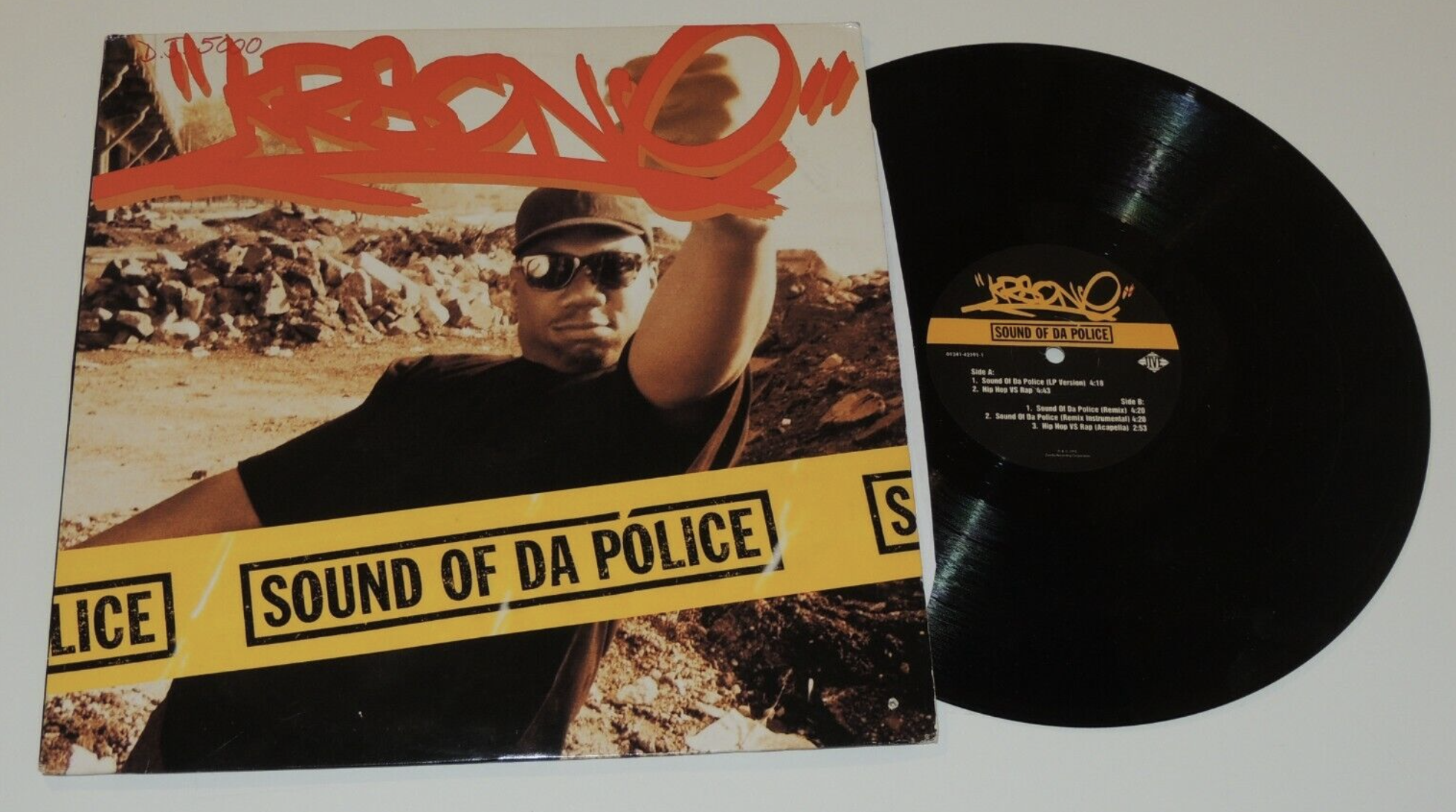Officer/Overseer Psuedo-etymology
KRS-One is an Bronx rapper famous for his political and social commentary infused lyrics. One of his more controversial songs was “Sound of da Police” (1994) which builds from the anti-police rhetoric common the late 80s and early 90s rap music. It was released just six years after the Compton, CA based NWA made headlines after their more explicit “F*** tha Police” (1988) and two years after the Rodney King riots in Los Angeles. KRS-One compares police officers to slave overseers and makes direct comparisons between treatment of slaves and police brutality.
Yeah, officer from overseer
“Sound of da Police” (1994) KRS-One
You need a little clarity? Check the similarity!
The overseer rode around the plantation
The officer is off, patrollin’ all the nation
Here he introduces a “Psuedo-etymology” with the words officer and overseers. We are likely familiar with these types of constructions—a common example is SOS as acronym meaning “save our ship.” While a fun and seemingly logical connection, the phrase SOS was chosen simply based on its ease to transmit using Morse code without any intentional acronym.
While the words sound similar, especially when they are rapped with the distinct Bronx accent and its dropped “r” sound at the end of words, they have completely different origins. Overseer stands out in my mind particularly now because it is often the word used to translate the Greek “episkopos” or the office of bishop. Interestingly, the modern English word “overseer” does have a Greek cognate, but comes through the Old English (and therefore Saxon and proto-germanic languages) that places a preposition for ‘above/over’ or Old English “ofer” or germanic “uber” which is certainly similar to the Greek “huper” and Latin “super.” But KRS-One is pointing to the terms as used in the hierarchy of antebellum slavery. The “overseer” was “on large plantations, the person who directed the daily work of the slaves…” (source: National Humanities) as referenced in the song with lines like:
“The overseer had the right to get ill*
[ill as New York slang for wild or crazy]
And if you fought back,
the overseer had the right to kill”
He compares it to the word officer which is etymologically derived from the Latin officiarius/officium or to break it down a step further “opus” (work) and “facere” (to do/make). Which is why the Prayerbook calls the “work” of our prayer services the “divine offices” or in modern language our “jobs” are often titled with the “office of…[insert job title]” Another word for pseudo-etymology is “folk etymology” and seems to be fairly common in our culture that looks for connections between various cultures. Unfortunately, KRS-One is attempting to use the connection as weighted evidence for his argument which is often described as employing the “etymological fallacy.” This is the idea that the meaning of a word today might give weight to an interpretation of that word historically.
But no—the word officer is not some hidden evidence of how the police officer is the continuation of the slave overseer. The words are not related and do not reveal some historic conspiracy, they just sound similar in modern New York English.
ABOUT RAP REFLECTIONS
I’m adding a section here on my blog to save some of my thoughts on rap and hip-hop music using the tag: Rap Reflections. Prior to envisioning myself in Christian ministry my teenage angst was directed towards pursuing a career as a hip-hop DJ. It was eventually my interest in rap music that was used to “trick me” into hearing the sermon that opened my heart to Christ at sixteen-years-old. As a consequence, my mind holds onto a significant cultural catalogue of references, lyrics, and anecdotes that don’t fit with the worldview that I currently hold. As my taste today is more Haydn than hip-hop, more Vivaldi than Master P, baroque than folk, etc.

Leave a ReplyCancel reply